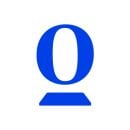At some companies, new hires are given quite a bit of time to get settled in their role and with their team before being challenged. At others, they are given the opportunity to contribute right away and make an impact.
GRAIL is an example of the latter.
In the summer of 2021, the company launched its multi-cancer early detection test, Galleri. Claire O’Connell, associate director of technical product management, joined shortly before the release of Galleri and told Built In San Francisco she was “struck by the depth of thought and level of planning that the team had put in” to the launch plan. O’Connell didn’t have much time to be in awe, though, as she quickly found herself part of the rollout.
“As a new joiner, it was hard to imagine how I could get up to speed and contribute at that level, but a few short weeks later I was given the opportunity to tackle the design of the program and data pipeline to refine our test based on real-world patient experience with Galleri,” O’Connell said.
If you’re about that action then continue reading to learn more about GRAIL and three other local tech companies — all of which are hiring now — that give new team members the ability to hit the ground running and make an immediate impact.
ServiceNow provides the platform for enterprise companies to build platforms that improve the efficiency and increase the capabilities of HR, customer service teams, IT teams and more.
Think back to your early days on the job. What surprised you or stood out to you most about ServiceNow’s culture?
The culture here is one of the most collaborative and innovative environments I have experienced in my career. What stands out is how the teams remain lean and agile even though the company is growing at such a fast pace. Everyone is treated equally and has a voice at the table, irrespective of titles or roles. For example, I clearly remember a scene from my early days here where I shared an interesting idea and immediately our senior director began implementing a proof of concept for it.
What I love about working here is that we experience the best of both worlds: the speed, energy and agility of startups along with the security and process-driven, operationally excellent methodologies of an established company. I’ve moved across three teams and all my managers were very supportive and encouraging of my choice to pursue my passions. When people ask me why I moved across three teams I tell them, “Because at ServiceNow, I don’t feel the need to look outside! I have everything I need here.”
ServiceNow has created many development programs for women, and it’s a great promoter of equity for women in the workplace.”
How long have you been with ServiceNow, and what professional growth or development have you seen in that time?
ServiceNow is the right place for anybody who wants to dream big. I’ve been with the company for four-and-a-half years and have been promoted three times. I started as a staff software engineer and now I’m a senior manager of engineering overseeing around 15 people. I’ve been given all the opportunities to grow myself and my team, work closely with customers to build seamless upgrades and showcase my leadership and management skills.
ServiceNow has created many development programs for women, and it’s a great promoter of equity for women in the workplace. I’ve seen many women here take up lead, manager and VP roles, which has played a key role in our diversity. Through ServiceNow’s Women Leadership Development program, I’ve learned how to hone various skills, including negotiation, communication, networking, personal branding and management, all in the comfort of my peer cohort. Through my time here, I’ve learned to be more grounded and stable, and I’ve gained the confidence to take on new challenges and encourage my team to do so, too.
GRAIL is a healthtech company that has developed an early detection cancer test covering 50 different types of cancers.
Think back to your early days on the job. What surprised you or stood out to you most about your GRAIL’s culture?
I joined GRAIL shortly before the national launch of Galleri, our multi-cancer early detection test, and I remember attending a companywide meeting in which the launch plan was presented. GRAIL was new to the commercial setting since we had focused on clinical studies until that point, and I was struck by the depth of thought and level of planning that the team had put in. As a new joiner, it was hard to imagine how I could get up to speed and contribute at that level, but a few short weeks later I was given the opportunity to tackle the design of the program and data pipeline to refine our test based on real-world patient experience with Galleri.
From those early days to now, no matter the circumstances, I’ve noticed that GRAILers consistently keep the bar high in approaching problems they’ve never tackled before and bring the collective drive and vision to work through them together. Leaning into the hard problems, pushing through as a team and having a “yes before no” mindset is really unique in my experience and are just some aspects of our culture that I love.
I continue to learn, grow and be constructively challenged every day.”
How long have you been with GRAIL, and what professional growth or development have you seen in that time?
I’ve been with GRAIL for almost two years and have been fortunate to have had the opportunity to contribute to our data platform and real-world evidence strategies. Beyond the rewarding work and constant learning, perhaps the most meaningful aspect of my experience has been hiring and leading a team of data product managers. Though at times doing my individual contributor work alongside hiring and laying the foundations for a new team felt overwhelming, seeing the impact of our team and our growth has been really meaningful to me. I continue to learn, grow and be constructively challenged every day and am confident that this experience will serve me well in the future as my career develops.
Finch helps companies spend less time manually updating employee information through its API that enables HR platforms like Namely, Justworks and Gusto to communicate and share data.
Think back to your early days on the job. What surprised you or stood out to you most about Finch’s culture?
During my early days on the job, what stood out to me the most about Finch’s culture was the strong emphasis on teamwork and collaboration. One anecdote that comes to mind is while I was working on a technical marketing project the engineering team was more than willing to jump in and help. Because of this, the task was completed ahead of schedule!
What’s the coolest project you’ve worked on recently, and what skills did it help you develop?
The coolest project I’ve worked on recently is a webinar in collaboration with the sales team. It has helped me better develop my skills in event planning, including creating agendas, coordinating with speakers and ensuring the proper technology and logistics are in place. It’s been a great learning experience overall and it’s allowed me to collaborate with other teams within the organization, which is always a plus.
Opendoor is a real estate tech company that gives homeowners an offer simply by inputting their address and filming a video walkthrough.
Think back to your early days on the job. What surprised you or stood out to you most about Opendoor’s culture?
I was immediately struck by how closely our engineering team worked with the operations team. I noticed how much everyone collaborated and truly believed in our mission. One of our operating principles is “one team, one dream,” and it’s a testament to Opendoor’s cultural superpower that brings a diverse set of roles together working with mutual respect. That’s been a consistent experience from my first day to today.
I work with cross-functional peers on a daily basis in engineering, design, ops and product. Our teams are aligned from the start, working together on quarterly planning, headcount planning, design decisions and platform sequencing. While 2022 was a challenging year given the broader macroeconomic factors and its impact on the housing market, we have navigated these changes as a team and become even closer by up-leveling our cross-functional connection. People assume good intent and are genuinely open to feedback. We all want to improve and do the best for our customers. I love that engineers like myself and engineering managers can bring their true selves to work.
It was a massive opportunity coming in to help define that platform strategy and core migrations for the next two-to-three years.”
How long have you been with Opendoor, and what professional growth or development have you seen in that time?
I joined Opendoor as part of the Pro.com acquisition in 2021, and my main mandate was to build core platform foundations across different products and verticals. It was a massive opportunity coming in to help define that platform strategy and core migrations for the next two-to-three years. I thoroughly enjoyed my first few months learning all aspects of Opendoor’s business.
I’ve grown the most as an individual contributor by building various platform teams in the United States. I heavily focus on strategy topics like organizational design, solving engineering ownership problems through modular design, finding new platforms or business opportunities, and carving clean charters for better focus.
One example is our UI monolith, which is notoriously difficult to develop upon across teams. To mitigate this, we proposed building a core modular UI framework to contain complexity and modularize reusable functionality. The initial concept was adopted and is now being executed across all of our tooling surfaces. In addition to the work, we are in the process of building an India developer center. The main focus is to hire amazing engineers who would own a platform or business problem.









